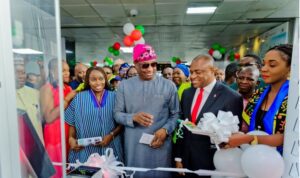Explore non-debt means to finance budget — Experts task FG
Economic experts have urged the Federal Government to look for non-debt means to finance the nation’s annual budget toward reducing deficit and borrowing now on the increase in Nigeria.
The experts made the plea on Thursday in Ibadan at the Budget Seminar 2023.
It was organised by the Department of Economics, University of Ibadan, in conjunction with the university”s Eco Alumni Council.
The Interim Chairman, UI Eco Alumni Council, Dr Ayo Teriba, said that Nigerian budget, as it is, was unrealistic, hence the need to explore other non-debt means to ensure its realisation.
According to Teriba, most of the time, budget revenue is inflated and we really cannot get that level of revenue.
“This year, we are looking at N10 trillion and last year was N7 trillion and our expenditure is also very high.
“Nigeria has to think of how to move away from borrowing, because the level of our debts has gone up to about N77 trillion.
“We should be more creative with the way we finance our budget. In doing this, Foreign Direct Investment (FDI) should be stressed,” he said.
Also, Prof. Adeola Adenikinju, Head of Economics, Department, University of Ibadan, said, “when FDI is employed, it comes with new technology.
“Because, you are trying to get foreign capital to come in and invest to create jobs, value addition and so on.
“And, if the environment is very conducive, it will lead to having a more stable income for the country. FDI is not very volatile, unlike foreign portfolio investments or exports.
“We are sitting on a lot of assets and if we properly value them, foreigners can buy shares, they acquire equity and then, that will bring in more money for the government; so, these are non-debt ways to finance the budget.”
On difficulty encountered in the repatriation of funds, Adenikinju said if the country was going to do FDI, then, it must create an environment that would facilitate it.
“If you want to attract people, you must also assure them that they can take their money away. We need to put certain measures in place that will support more Foreign Direct Investment,” Adenikinju said.
In his remarks, Prof. Lanre Olaniyan, Dean, Faculty of Economic and Management Science, University of Ibadan, said that the seminar was to look at the workability of the 2023 Budget.
“The challenges have been highlighted as well as the headwinds that can create problems.
“We have discussed that some of the assumptions made for the budget are impracticable, especially concerning the budgeted revenues, as there are possibilities that Nigeria would not be able to achieve them.
“The deficit position and the issue of debts service and borrowing that are embedded in the budget are serious challenges.
“The summary is that past experiences have shown that we may not attain the target set on the budget.
“The seminar also identified that many of the issues that were in the National Development Plan (NDP) 2021 to 2025, which the budget is expected to contribute to, have not been done.
“So, the budget appears to be working differently from what the NDP thinks it should,” Olaniyan said.
He said that when the budget was prepared, it has to be in sync with the population structure.
“Why we have a low tax-to-revenue base is because we are not considering the proportion of Nigerians that are working.
“Only 17 per cent of Nigerians are employed and it is their income that we are taxing, then, we can only expect that tax revenue to GDP will be low.”
Also, Dr Afolabi Olowookere, said that Nigerian budget was small, though it rose from N5.07 trillion in 2015 to N21.83 trillion in 2023, it has yet to be sufficient to cater for the size of the nation’s economy, if compared to other nations.
Olowookere said analysis of the budget showed that Nigeria spent a lot on administration and security and less on the economy, adding that this needs to improve.
“The size of the Nigerian budget has risen significantly over the years, but when compared to the size of the economy, Nigeria’s budget is relatively small.
“Nigeria needs to spend more, therefore, it needs to earn more in terms of taxes and efficient administration, otherwise the deficit can become unsustainable.
“The country needs to optimise the relationship between capital and recurrent expenditure.
“Plug leakages and prioritise projects to ensure impact assessment as well as leverage the private sector in the provision of basic infrastructure,” he said.
In his remarks, Prof. Ibi Ajayi, the Chairman of the event, also a retired Professor of Economics, said that government must cut wastage and ensure transparency.
Ajayi said that insecurity must also be tackled, and as well follow the rules and regulations of Economic Laws for a robust economy.




